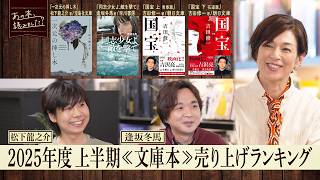The novel *Comrade Girl, Shoot the Enemy*, which has won multiple literary prizes including the 11th Christie Award Grand Prize and the 9th High School Naoki Prize, explores themes of resilience, revenge, and the psychological cost of war.
On October 2nd, the author Aisaka appeared on BS TV Tokyo’s literary talk show *Have You Read This Book?* to discuss the story’s creation and impact. He was joined by fellow novelist Ryunosuke Matsushita, author of *One-Dimensional Cuttings*, and Shingo Ikeya, editor at Asahi Shimbun Publishing, who shared insights on the hit film adaptation of *National Treasure*.
Aisaka admitted he had never expected such success for his debut novel. “It’s about a Soviet female sniper during the German-Soviet war — a relatively obscure topic in historical fiction,” he said. “It could easily have failed for that reason. But the book’s momentum was strong from the start, with a reprint decided the day after release.”
The novel’s publication in November 2021 gained unexpected resonance when Russia’s invasion of Ukraine began in February 2022. This prompted readers and interviewers to draw parallels between the book and current events. “That period was both when the book sold best and when it was most difficult for me personally,” Aisaka recalled. “But if I avoided those questions, readers would lose the chance to think deeply about the reality of war. That’s why I wrote this novel — to make people reflect on conflicts that continue somewhere in the world.”
Set in 1942 as the German-Soviet war intensifies, the story follows Serafima, a young Soviet girl whose mother and fellow villagers are massacred by German troops. Saved from execution by a female soldier named Irina, Serafima joins a unit of women who, like her, have lost their families and chosen to fight.
Through grueling training, she becomes a sniper and is deployed to the front lines of Stalingrad — a decisive turning point in the war.
At its heart, the novel asks a profound question: after enduring unimaginable loss, who is the true enemy she must confront?
Aisaka deliberately chose Stalingrad as the setting, calling it “the largest battlefield of World War II and perhaps the largest war between two nations in history.” Yet, he noted, Japanese education often overlooks the Eastern Front.
“For many Japanese, World War II is synonymous with the Pacific War,” he said. “And cultural influences since the Cold War have simplified the Eastern Front into ‘evil Germany versus brutal Russia.’ But within that conflict were extraordinary figures — among them, Soviet women who volunteered as soldiers, the only nation at the time to deploy them as part of its regular forces.”
A powerful scene highlighted on the program depicts Serafima, after witnessing the murder of her mother and neighbors, meeting Irina who callously destroys her family’s belongings and burns her mother’s body. Enraged, Serafima seizes a gun, declaring, “I’ll kill the Germans and you. I’ll kill them all.”
Irina, impressed by her resolve, spares her and allows her to fight.
“I want to root for Serafima,” said host Honami Suzuki, “but her growth — physical, mental, and emotional — comes through deeper immersion in war.”
Aisaka agreed, calling the book a kind of “coming-of-age story” where maturity means becoming optimized for killing. “Snipers must know exactly who they shoot,” he said. “And the terrifying truth is that, with enough training, almost anyone can do it.”
Through its raw portrayal of trauma, revenge, and moral transformation, *Comrade Girl, Shoot the Enemy* transcends historical fiction to become a meditation on how war reshapes humanity — a message that continues to resonate as real-world conflicts unfold.
https://newsonjapan.com/article/147270.php
